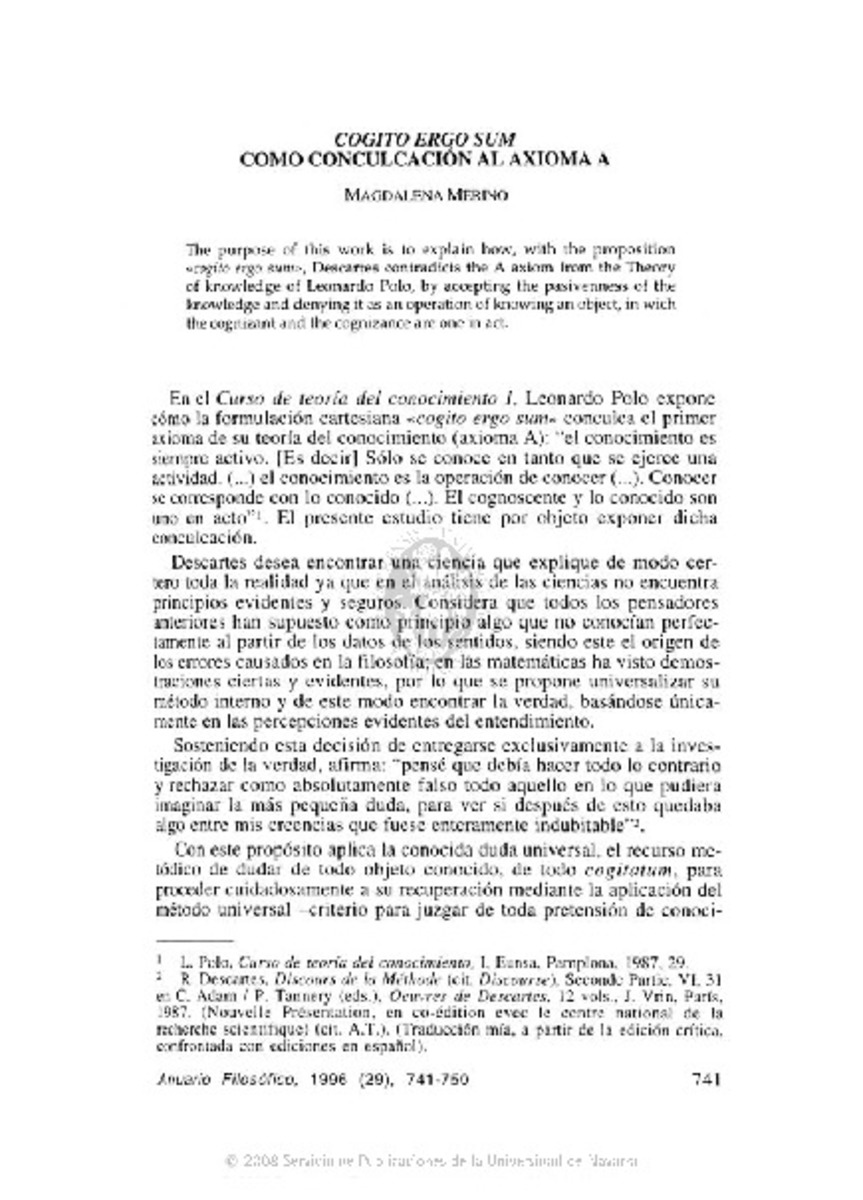Full metadata record
| DC Field | Value | Language |
|---|---|---|
| dc.creator | Merino, M. (Magdalena) | es_ES |
| dc.date.accessioned | 2005-05-13T17:05:45Z | es_ES |
| dc.date.accessioned | 2007-03-08T16:35:23Z | - |
| dc.date.available | 2005-05-13T17:05:45Z | es_ES |
| dc.date.available | 2007-03-08T16:35:23Z | - |
| dc.date.issued | 1996 | es_ES |
| dc.identifier.citation | Anuario Filosófico, 1996 (29), 741-750 | es_ES |
| dc.identifier.issn | 0066-5215 | es_ES |
| dc.identifier.uri | https://hdl.handle.net/10171/741 | - |
| dc.description.abstract | The purpose of this work is to explain how, with the proposition "cogito ergo sum", Descartes contradicts the A axiom from the Theory of knowledge of Leonardo Polo, by accepting the pasivenness of the knowledge and denying it as an operation of knowing an object, in wich the cognizant and the cognizance are one in act. | es_ES |
| dc.format.extent | 53760 bytes | es_ES |
| dc.format.extent | 53760 bytes | - |
| dc.format.extent | 37635 bytes | - |
| dc.format.extent | 1892 bytes | - |
| dc.format.mimetype | application/msword | es_ES |
| dc.format.mimetype | application/octet-stream | - |
| dc.format.mimetype | application/pdf | - |
| dc.format.mimetype | text/plain | - |
| dc.language.iso | spa | es_ES |
| dc.rights | info:eu-repo/semantics/openAccess | es_ES |
| dc.title | 'Cogito ergo sum' como conculcación al axioma A | es_ES |
| dc.type | info:eu-repo/semantics/article | es_ES |
| dc.identifier.doi | 10.15581/009.29.29727 | es_ES |
Files in This Item:
Statistics and impact
Items in Dadun are protected by copyright, with all rights reserved, unless otherwise indicated.






